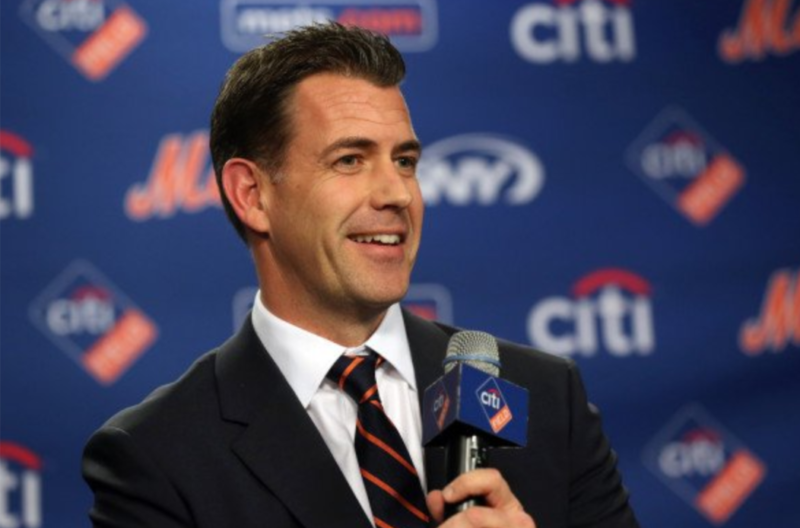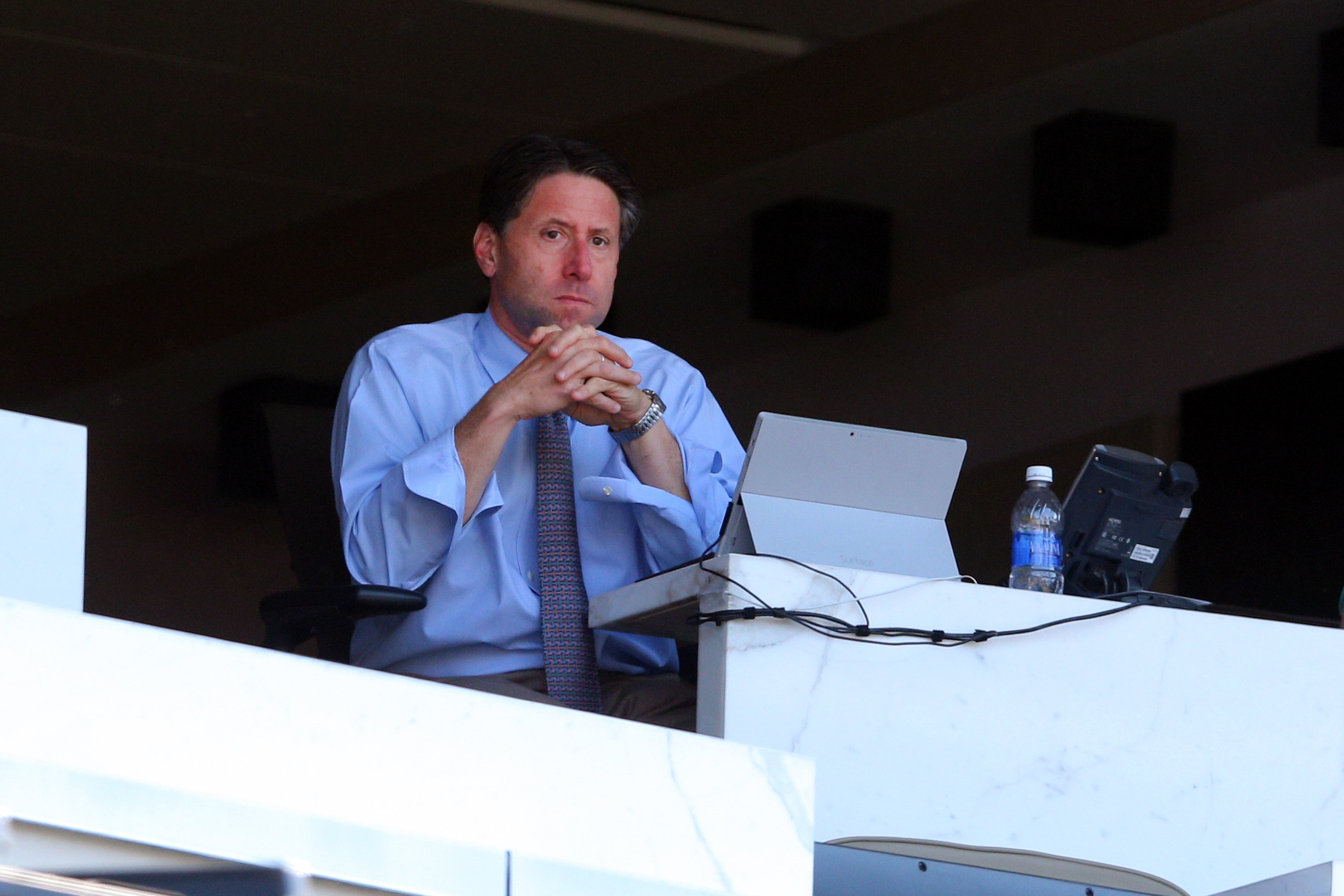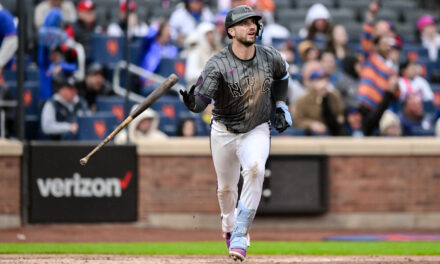
To begin the offseason, new Mets’ general manager Brodie Van Wagenen made one of the biggest trades the team has seen in years, acquiring second baseman Robinson Cano and closer Edwin Diaz from the Seattle Mariners for a package that included top Mets’ prospects Jarred Kelenic and Justin Dunn.
The Mets complemented the trade by adding catcher Wilson Ramos, bringing back reliever Jeurys Familia and signing infielder Jed Lowrie and left-hander Justin Wilson.
Van Wagenen proclaimed the Mets were all in, that they would be competitive this year and for years to come.
These moves at the time were not bad, but with a star-studded free agent class that had the likes of Bryce Harper, Manny Machado, Craig Kimbrel and Dallas Keuchel, the offseason fell flat.
New York can still sign Keuchel or Kimbrel who remain free agents, which I will touch upon later. However, when you boil down New York’s offseason, Van Wagenen called the Mets the team to beat in the National League East, but did relatively little to thrust them into an immediate contender.
A big reason New York traded for Diaz was allegedly to keep him away from the rival Philadelphia Phillies, but then allowed that same team to sign the young stud Harper while they sat on their hands.
The Phillies, who proclaimed that they would spend a ton of money this winter, did and landed Harper on a 13-year mega contract. While flawed in their own respect, Philadelphia saw a window of opportunity and pounced.
The Mets marginally improved their big league roster, but compromised their farm system to do so along the way, and failed to sign a blockbuster free agent.
As of today, May 18, the Mets sit at 20-23 and 4.5 games out of first place behind the aforementioned Phillies. They are slipping fast.

A Systematic Issue
When the team tabbed Van Wagenen as the new general manager, I remember reading a tweet that said something along the lines of, “We are either going to look back at this hiring as a genius move, or a huge failure.”
Only time will tell, but it’s not looking great so far.
The Mets narrowed down the GM job to Van Wagenen, an agent with no prior experience in a front office, and up-and-comer, Chaim Bloom, Vice President of Baseball Operations for the Tampa Bay Rays.
Bloom, 35, would have been a tremendous hire to thrust the Mets into the 21st century. He is a mind that understands how the game operates today, and what needs to be accomplished in order to field a winning team in 2019.
Let’s take a look at the Rays. They are currently 26-16 and 0.5 games out of first place behind the New York Yankees. Their total payroll? Roughly $66 million.
Van Wagenen, an agent turned GM and shot in the dark candidate, went the route of risking prospects for players he’d hope would pan out. He’s already had to cut some of his losses.
The hire is part of a systematic issue. As long as the Mets are stuck with no discernible plan and operate in an antiquated way, the team is doomed for failure.
Would Bloom have succeeded? It’s impossible to tell. But tabbing him instead of Van Wagenen would have made more sense from an experience stand point, and would have seen the team attempt to step into the present day and age.

Wasted Money, Depleted Farm System and Head Scratching Decisions
This winter during a flurry of moves, the Mets decided to send catcher Kevin Plawecki to the Cleveland Indians for a pair of prospects. This signified that New York would give the back up job to Travis d’Arnaud, who was coming off Tommy John surgery.
By choosing to keep d’Arnaud, the Mets went with the more expensive option. But, even after the trade, they still had an opportunity to cut him before the season.
He broke camp with the team, meaning he had a guaranteed salary of $3.5 million. After a dismal start to the year, New York designated the longtime catcher for assignment, and he was subsequently released. New York is now on the hook for roughly $2 million of that contract.
Adeiny Hechavarria, a defense forward shortstop, was picked up by New York this winter. A solid depth piece, the Mets chose to promise him a $3 million base salary if he made the majors.
At first, New York went with the less expensive option by breaking camp with Luis Guillorme and starting Hechavarria at Triple-A. However, the latter is now in the majors and is making way more than Guillorme.
The Mets are also investing $8 million in Jason Vargas, who they reportedly believe is a fine fifth starter and not much of an upgrade over Gio Gonzalez, who has pitched to a 1.69 ERA and has been worth 0.9 bWAR in four starts since being cut by the Yankees and picked up by Milwaukee.
That’s nearly $13 million that could have been better invested elsewhere.
If money is such a concern for the team, why is it invested so poorly? That’s $13 million that could have been allocated differently, when the Mets could have had better players fill those roster spots for a fraction of the price.
And if money is such a concern, why did you hamstring yourself by picking up a majority of Robinson Cano’s lucrative contract, then half ass the rest of the offseason?
If you don’t want to spend on a marquee free agent, fine, but you have to be creative elsewhere.
The solution? Compromising the farm system.
Since Van Wagenen has been at the helm, New York has traded away nearly a dozen prospects for aging veterans, unproven commodities and depth pieces.
The latest of which was when the team DFA’d outfielder Keon Broxton on Friday. The 29-year-old went 7-for-49 as a Met and cost them three prospects.
Not only has the team made poor trades and investments and depleted their farm system so far this year, but if they continue to skid, it was all for nought.

Doing the Same Thing Over and Over and Expecting a Different Result
Why is not more time and attention dedicated to building a contender in a more conducive way?
The Mets analytics team has improved recently, but they are still miles behind teams like the Houston Astros, St. Louis Cardinals, Los Angeles Dodgers and Rays.
Spending on aging veterans whether it be via trades or free agency seldom works, but the Mets have continued to allocate their resources into that market.
With teams now building their teams primarily through the draft and international free agent market, it’s time the Mets do the same.
The Mets this winter also tabbed Chili Davis as their hitting coach and Jim Riggleman as their bench coach. The former’s philosophies are unsustainable and antiquated, and the latter is an old school type baseball lifer who has struggled in his time as manager over 13 big league seasons.
While teams are trying to do all they can to adjust to the analytic revolution, the Mets are trying to get results from the way baseball was played decades ago.
If 2019 falls by the wayside, the Mets will need to face themselves and make changes for the better and thrust themselves into the present day. If not, they will continue to endure Groundhog Day.














